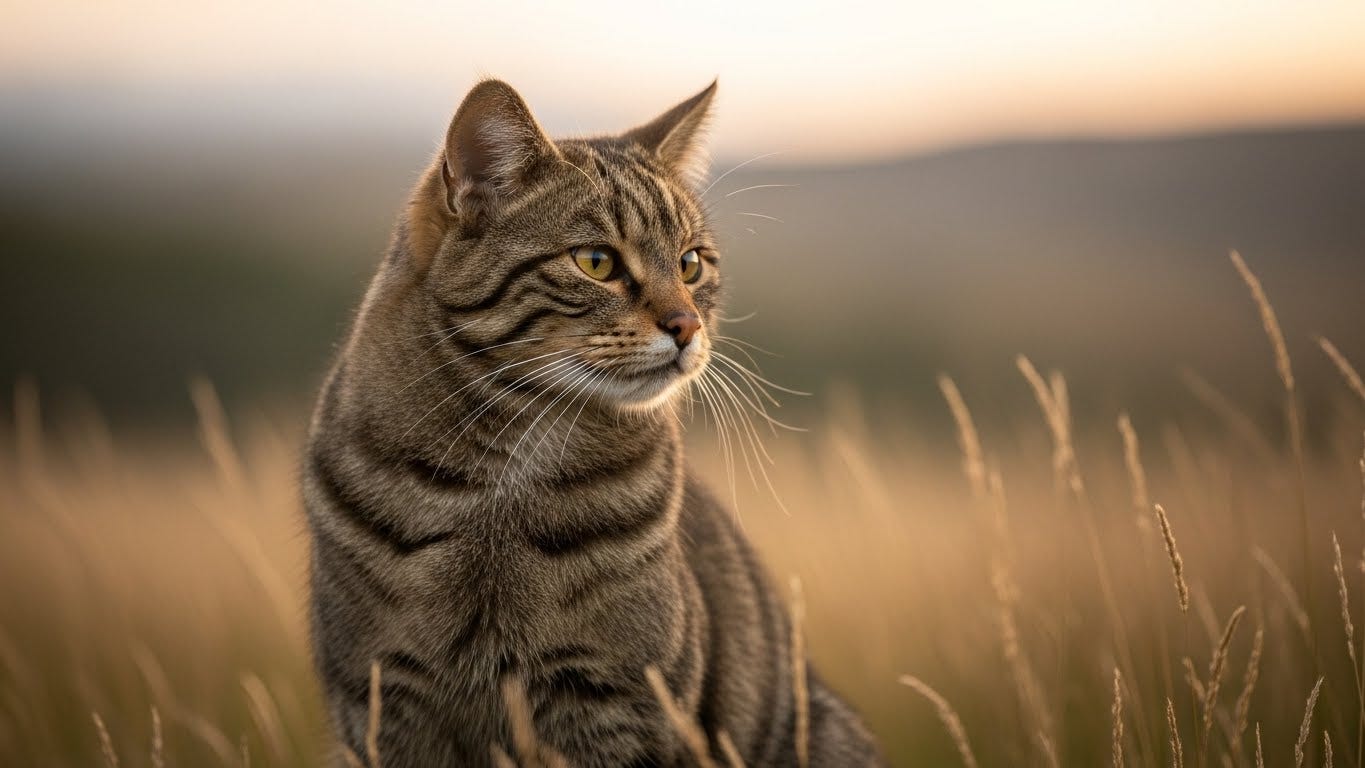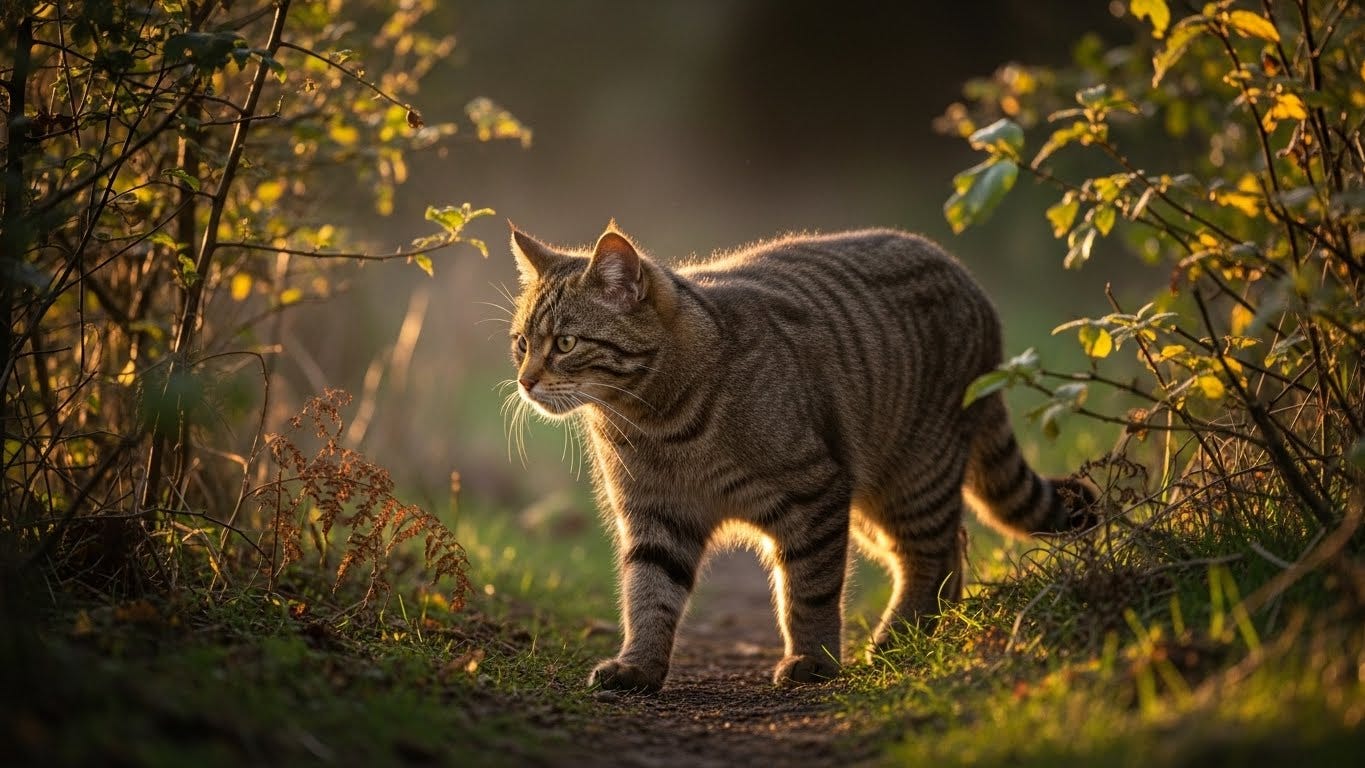The news that European wildcats could return to England for the first time in 100 years has captured national attention. A major feasibility study has found that reintroducing wildcats to south-west England, specifically mid-Devon, is realistic, supported by local communities and ecologically sound.
This development is more than a wildlife story. It’s a blueprint for rewilding, habitat restoration and community-led conservation. All themes central to our mission at LettsSafari.
What Is Happening With European Wildcats in England?
A two-year study led by the South West Wildcat Project (involving Devon Wildlife Trust, Forestry England and Derek Gow Consultancy) concluded that releasing 40–50 wildcats into Devon from 2027 onwards is feasible.
Key findings include:
Suitable habitat: Woodland, scrub and grassland in the region offer ideal cover and hunting grounds.
Strong public support: Surveys of 1,000 and 1,425 residents found 71% and 83% in favour of wildcat reintroduction.
Low risk: Wildcats pose no danger to people, livestock or endangered wildlife. They primarily hunt small mammals like voles and rabbits.
Main challenge: Preventing hybridisation with feral and domestic cats, a known threat to wildcat genetics.
This study marks the most credible wildcat-return plan England has seen in a century.
Why the Wildcat Story Matters for UK Rewilding
The potential return of the wildcat is a powerful reminder of what rewilding can achieve, when habitat, science and people align.
1. Habitat Connectivity Works
The study highlights how connected landscapes (woodland joined to grassland and scrub) create resilience. This mirrors what we promote at LettsSafari: Even small rewilded spaces (gardens, parks, balconies) become powerful when connected.
2. Community Support Drives Conservation
The wildcat project shows that local buy-in is essential. People don’t just tolerate rewilding - they champion it when they understand the benefits.
3. Long-Term Stewardship Is Essential
Rewilding is more than releasing animals. It requires:
Monitoring
Habitat management
Community engagement
Genetic protection measures
Smaller-scale rewilding at home works the same way: success comes from ongoing care, not one-off planting.
4. Restoration Is Possible, Even After 100 Years
The wildcat’s story proves that lost species and habitats can recover with the right plan.
This message lies at the heart of LettsSafari’s mission: Restoration begins one small space at a time.
What Are the Challenges of Reintroducing Wildcats?
While the study is positive, these challenges must be managed:
Hybridisation with domestic cats (the biggest risk)
Funding for long-term management
Habitat upkeep and connectivity
Local landowner collaboration
Captive breeding programmes
None of these are insurmountable, but they require consistency, investment and patience.
What Happens Next for the Wildcat Project?
The next steps likely include:
Selecting animals for captive breeding
Building specialist enclosures
Developing community partnerships
Rolling out cat-neutering programmes to protect wildcat genetics
Preparing long-term monitoring systems
If successful, wildcats could be seen in England’s countryside again by 2027.
How This Connects to LettsSafari’s Work
At LettsSafari, we focus on rewilding smaller spaces - from parks to gardens to balconies - because these micro-habitats support wider ecological recovery.
The wildcat story reinforces several truths we work with every day:
Small actions scale up
Healthy habitats depend on diversity
People are central to nature recovery
Rewilding is achievable wherever you live
When you subscribe to LettsSafari, you support real-world restoration, from wildflower regeneration to pollinator habitats—helping rebuild ecosystems, one patch at a time.
Final Thoughts: A Blueprint for Hope
The possible return of wildcats to England shows what happens when nature is given space, and when communities choose restoration over decline.
For us at LettsSafari, it’s a reminder that every patch of land matters, from the largest woodland to the smallest balcony box. Rewilding is not a grand gesture - it’s a movement built from many small, hopeful acts.




